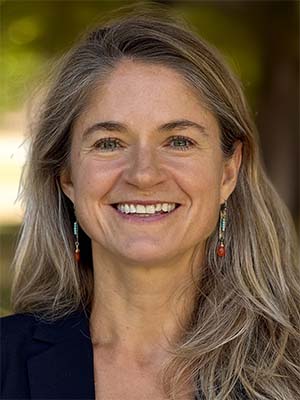
Addressing deforestation and its links to leather supply chains is the goal of a new partnership between the Gibbs Land Use and Environment Lab (GLUE) at the University of Wisconsin-Madison, National Wildlife Federation (NWF), the World Wildlife Fund (WWF), and the Leather Working Group (LWG). The project is led by Holly Gibbs, a professor in the Nelson Institute Center for Sustainability and the Global Environment (SAGE) and Department of Geography, and Lisa Rausch an assistant scientist with SAGE.
GLUE will leverage their scholarship and expertise to support the project by sharing the latest data, maps, and assessments related to deforestation in the Brazilian Amazon and Cerrado, and the Paraguayan Chaco. Using this information, the group will develop a framework that will help leather industry stakeholders to assess deforestation risks and ensure accountability.
“Over the last decade, we have been developing and using data science tools to help save the Amazon. We now have a massive property-level database that allows us to track cattle transactions across key Amazonian states and understand how ranchers, slaughterhouses, and tanneries respond to public and private sector policies,” Gibbs said. “The database allows us to conduct cutting edge academic research while also producing the solutions that can be used by the private sector.”
Gibbs and her team are known for their pioneering work to track deforestation, particularly in South America. They are currently utilizing cattle movement and supply chain data to track outcomes from the Zero-Deforestation Commitments in the Brazilian Amazon. The team of researchers and data engineers have used these findings to create a free, cloud-based supply chain traceability tool called Visipec designed for use by Brazilian meatpackers within the cattle sector. Visipec allows meatpackers to see, for the first time, which indirect suppliers with deforestation on their properties sell cattle to the properties that directly sell cattle to slaughterhouses. Increased visibility of these indirect suppliers to the meatpackers is essential to efforts to fully remove deforestation from beef supply chains and to reduce overall deforestation driven by expansion of cattle pastures, which is a leading cause of soaring deforestation rates in the Amazon.
This project aligns with GLUE’s previous work and goals as this project will facilitate traceability and transparency in the leather supply chain. In fact, that goal of the group is to work toward fully deforestation and conversion free (DCF) leather supply chains.
Rausch explained, “Leather is a key value chain linked to the cattle sector. This initiative will play an important role in motivating meatpackers to increase their ambition for reducing deforestation and to accelerate full implementation of their existing commitments.”
Gibbs’ work related to this project has also been highlighted in The Washington Post and the New York Times.